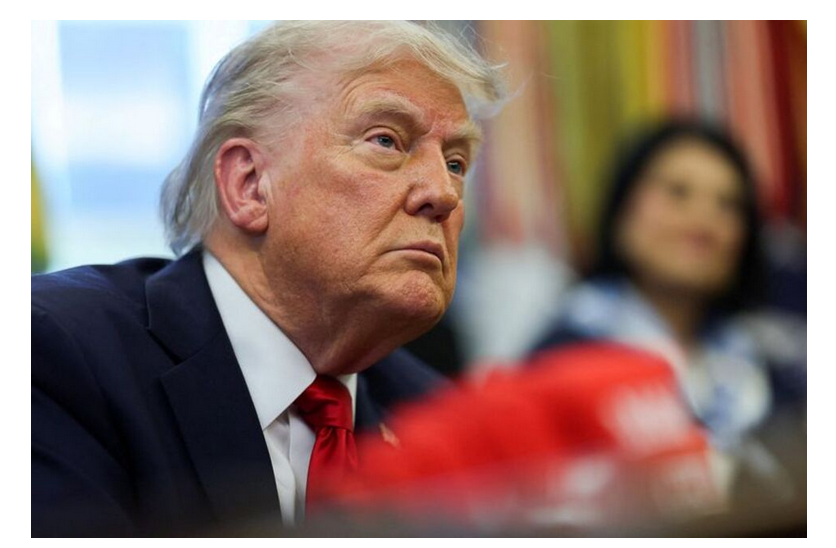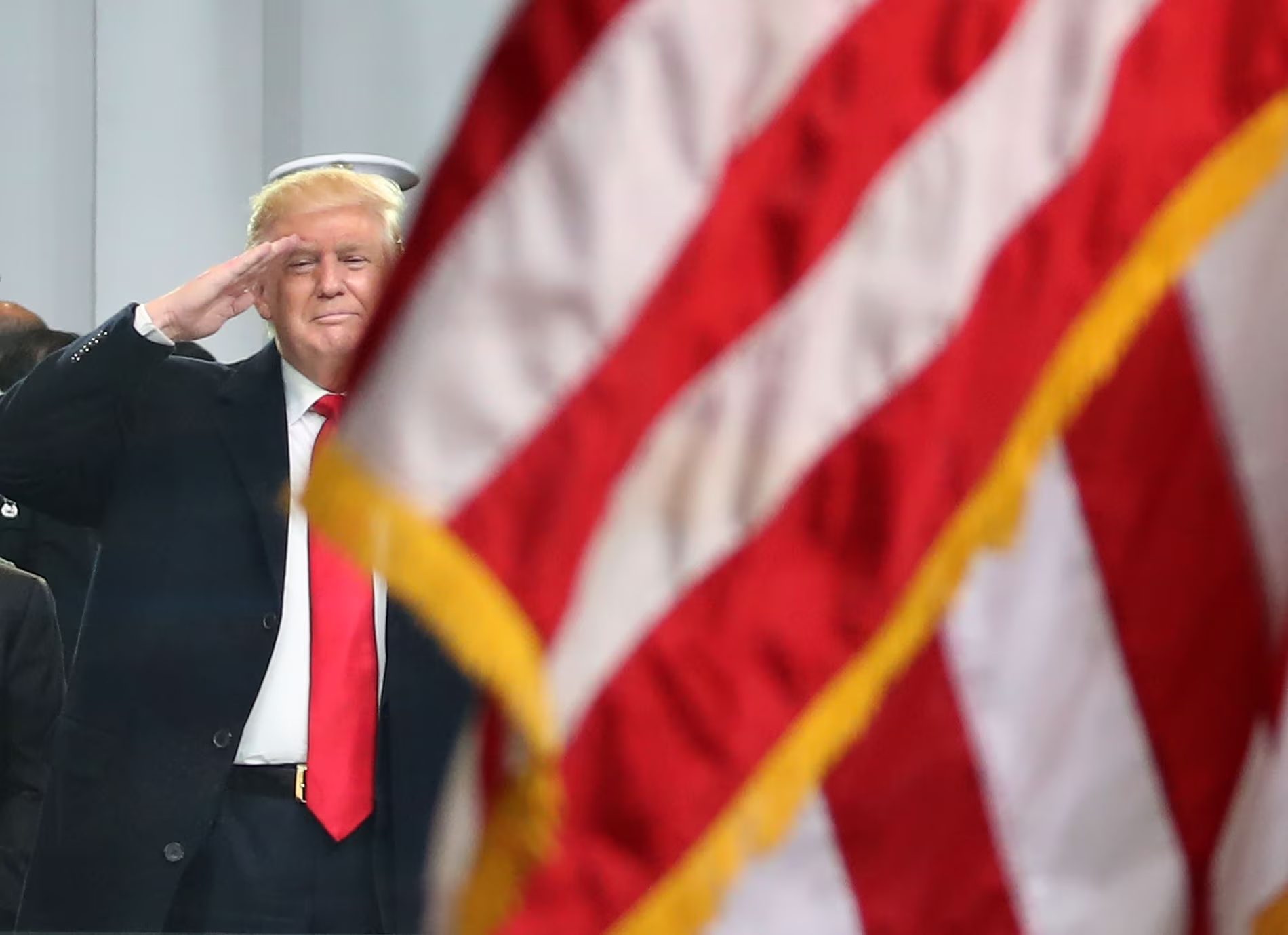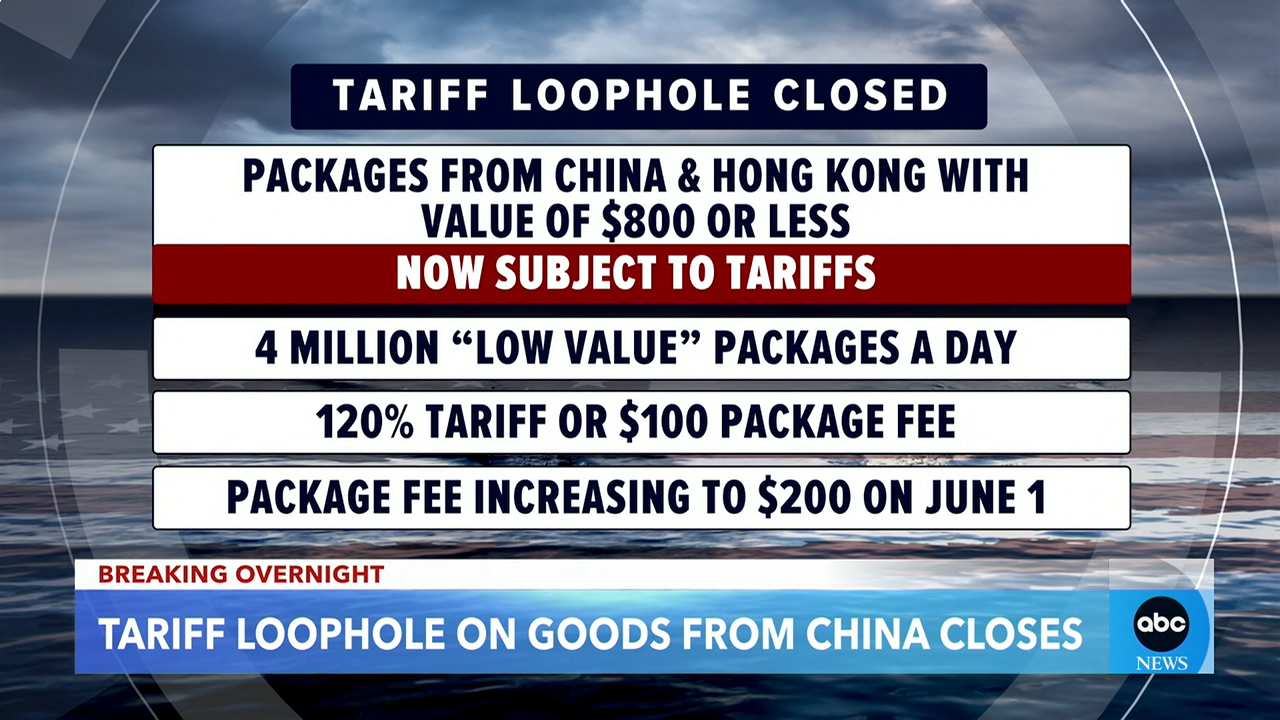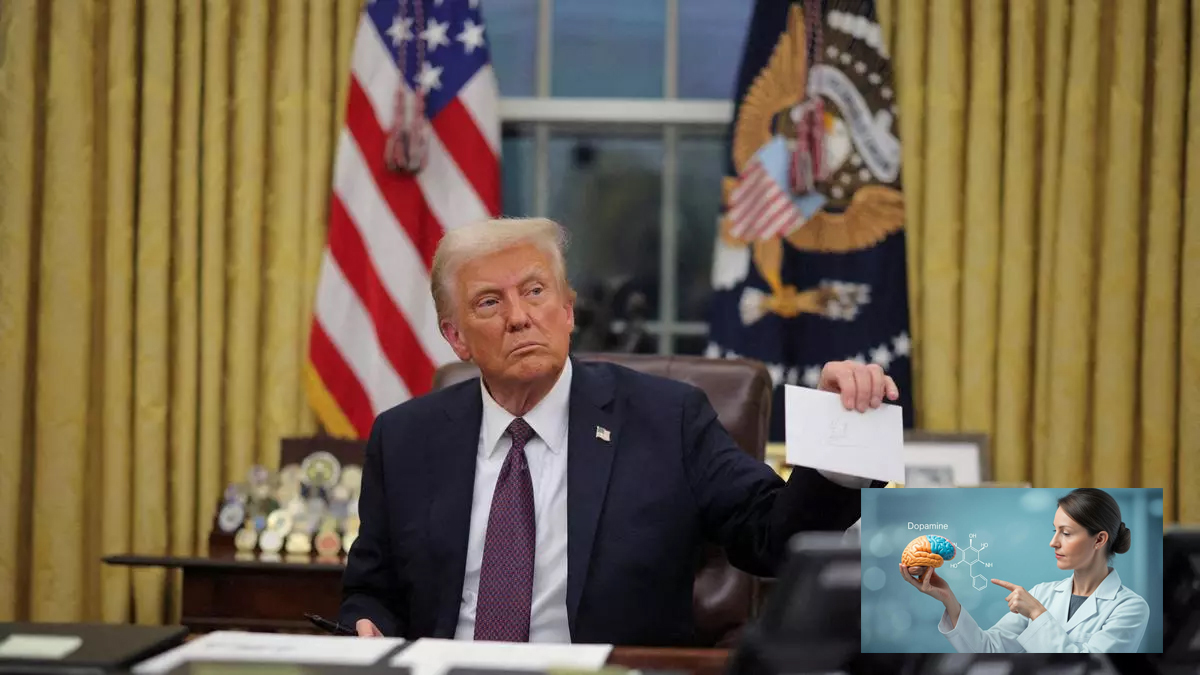Consumers Unhappy as Trump Nears 100-Day Mark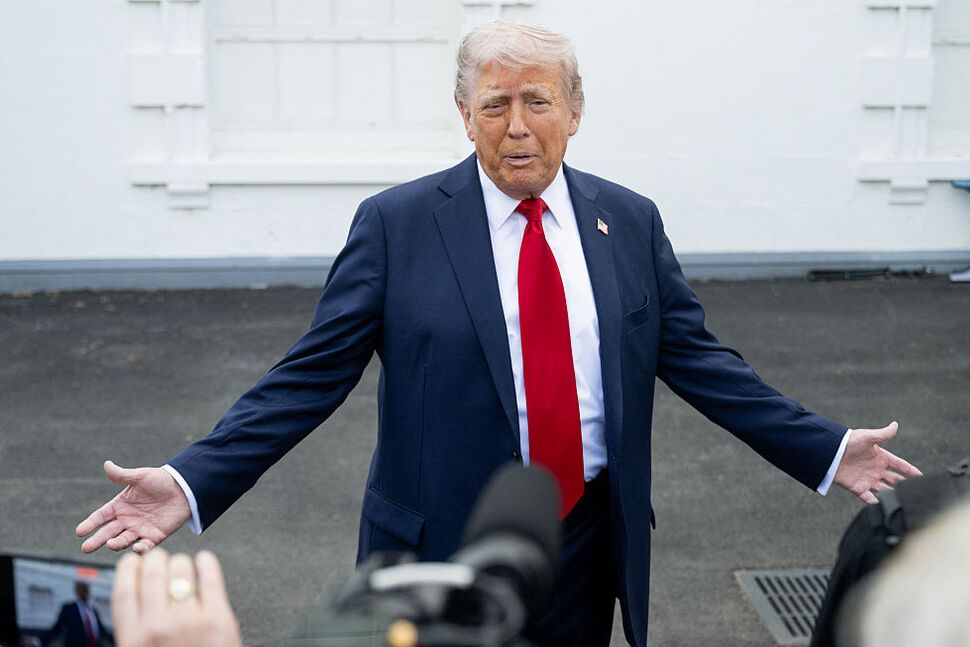
Economic Partnership
Consumers Unhappy as Trump Nears 100-Day Mark
The mood of consumers remained dour in April as worries over President Donald Trump’s import tariffs and inflation were top of mind, the University of Michigan said on Friday.
The university’s final consumer sentiment index came in at 52.2, down 8.4% from March and 32.4% lower than a year ago. The index of expectations for the economy came in at 47.3, down 10.1% from March and a whopping 37.8% from the same period in 2024.
“While the April decline in current conditions was modest, the expectations index plummeted with drop-offs in personal finances as well as business conditions,” survey director Joanne Hsu wrote in an analysis. “Expectations have fallen a precipitous 32% since January, the steepest three-month percentage decline seen since the 1990 recession.”
The decline in sentiment was broad across age and income groups.
“While this month’s deterioration was particularly strong for middle-income families, expectations worsened for vast swaths of the population across age, education, income, and political affiliation,” Hsu said. “Consumers perceived risks to multiple aspects of the economy, in large part due to ongoing uncertainty around trade policy and the potential for a resurgence of inflation looming ahead.”
Inflation expectations for where prices will be a year from now also rose 5% last month to 6.5% in April, the highest reading since 1981. “This month’s rise was seen across all three political affiliations,” Hsu said, adding that there was a slight moderation following the 90-day pause Trump placed on his more sweeping tariffs after the initial April 2 announcement. But the inflation outlook remains elevated.
That threatens a condition known as stagflation, where prices remain high and economic growth weak – a combination not seen since the 1970s.
“If stagflation does develop, the Fed will either have to raise rates to kill inflation and kill the economy at the same time, or lower rates to rekindle the economy and rekindle inflation at the same time,” said Dan North, senior economist for North America at Allianz Trade.
Although Trump’s second spell in the White House was greeted back in November, especially among businesses, the initial optimism has cratered as the president’s on and off tariffs have created much economic uncertainty. The stock and bond markets have been rattled, with some stock indexes flirting with bear market territory.
Recent economic data, much of it from March and earlier before tariffs were announced in full, has been decent although showing some slight moderation in activity. But sentiment surveys and other anecdotal reports show that tariffs are playing a major role in how businesses and consumers behave. Some items, such as cars, have seen a spike in sales as buyers seek to beat tariffs set to be placed on imported vehicles.
Still, a range of companies from consumer giants like Procter & Gamble and Pepsico have issued cautious outlooks for their businesses this year, while Delta, American and Southwest Airlines have all pulled their earnings and sales guidance for the year.
The bad news comes as Trump is set to mark his 100th day in office next week. And there will be little letup in potential embarrassing economic news with the Conference Board’s April consumer confidence index out on Tuesday and first-quarter gross domestic product on Wednesday. The latter is expected to show a marked decline from last year, with forecasts coming in that show very minimal growth.
Economists, meanwhile, have been lowering their estimates of GDP growth for 2025, with the International Monetary Fund on Monday dropping theirs to 1.8% from 2.7% as recently as January.
Trump has sounded a more conciliatory note on tariffs in the past couple of days, and other administration officials have suggested they are not worried about the slump in the stock market. But recent political polls also show that Americans are giving Trump negative ratings on the economy.
Some analysts have said the moves by Trump to reverse much of the postwar global trading and financial system’s rules are leading to the end of the “American exceptionalism” that has made the U.S. economy and markets the envy of the world.
“President Trump’s continued backpedaling on his ‘Liberation Day’ tariffs has reduced the odds of a very deep recession,” Peter Berezin, chief global strategist at BCA Research, wrote in a client note Friday morning. “Nevertheless, we continue to see a US recession in 2025 as our base case, with a subjective probability of 75%.”
Consumers Unhappy as Trump Nears 100-Day Mark
The mood of consumers remained dour in April as worries over President Donald Trump’s import tariffs and inflation were top of mind, the University of Michigan said on Friday.
The university’s final consumer sentiment index came in at 52.2, down 8.4% from March and 32.4% lower than a year ago. The index of expectations for the economy came in at 47.3, down 10.1% from March and a whopping 37.8% from the same period in 2024.
“While the April decline in current conditions was modest, the expectations index plummeted with drop-offs in personal finances as well as business conditions,” survey director Joanne Hsu wrote in an analysis. “Expectations have fallen a precipitous 32% since January, the steepest three-month percentage decline seen since the 1990 recession.”
The decline in sentiment was broad across age and income groups.
“While this month’s deterioration was particularly strong for middle-income families, expectations worsened for vast swaths of the population across age, education, income, and political affiliation,” Hsu said. “Consumers perceived risks to multiple aspects of the economy, in large part due to ongoing uncertainty around trade policy and the potential for a resurgence of inflation looming ahead.”
Inflation expectations for where prices will be a year from now also rose 5% last month to 6.5% in April, the highest reading since 1981. “This month’s rise was seen across all three political affiliations,” Hsu said, adding that there was a slight moderation following the 90-day pause Trump placed on his more sweeping tariffs after the initial April 2 announcement. But the inflation outlook remains elevated.
That threatens a condition known as stagflation, where prices remain high and economic growth weak – a combination not seen since the 1970s.
“If stagflation does develop, the Fed will either have to raise rates to kill inflation and kill the economy at the same time, or lower rates to rekindle the economy and rekindle inflation at the same time,” said Dan North, senior economist for North America at Allianz Trade.
Although Trump’s second spell in the White House was greeted back in November, especially among businesses, the initial optimism has cratered as the president’s on and off tariffs have created much economic uncertainty. The stock and bond markets have been rattled, with some stock indexes flirting with bear market territory.
Recent economic data, much of it from March and earlier before tariffs were announced in full, has been decent although showing some slight moderation in activity. But sentiment surveys and other anecdotal reports show that tariffs are playing a major role in how businesses and consumers behave. Some items, such as cars, have seen a spike in sales as buyers seek to beat tariffs set to be placed on imported vehicles.
Still, a range of companies from consumer giants like Procter & Gamble and Pepsico have issued cautious outlooks for their businesses this year, while Delta, American and Southwest Airlines have all pulled their earnings and sales guidance for the year.
The bad news comes as Trump is set to mark his 100th day in office next week. And there will be little letup in potential embarrassing economic news with the Conference Board’s April consumer confidence index out on Tuesday and first-quarter gross domestic product on Wednesday. The latter is expected to show a marked decline from last year, with forecasts coming in that show very minimal growth.
Economists, meanwhile, have been lowering their estimates of GDP growth for 2025, with the International Monetary Fund on Monday dropping theirs to 1.8% from 2.7% as recently as January.
Trump has sounded a more conciliatory note on tariffs in the past couple of days, and other administration officials have suggested they are not worried about the slump in the stock market. But recent political polls also show that Americans are giving Trump negative ratings on the economy.
Some analysts have said the moves by Trump to reverse much of the postwar global trading and financial system’s rules are leading to the end of the “American exceptionalism” that has made the U.S. economy and markets the envy of the world.
“President Trump’s continued backpedaling on his ‘Liberation Day’ tariffs has reduced the odds of a very deep recession,” Peter Berezin, chief global strategist at BCA Research, wrote in a client note Friday morning. “Nevertheless, we continue to see a US recession in 2025 as our base case, with a subjective probability of 75%.”


